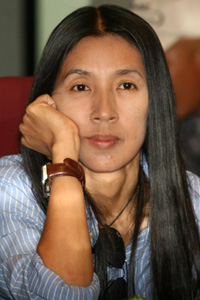Prime Minister Prayut Chan-o-cha’s “no-talks” stance with former leader Thaksin Shinawatra has effectively ended the rumours about a “super deal” between the military regime and the de facto boss of the Pheu Thai Party.
The rumours about political bargaining between the fugitive leader and representatives of the National Council for Peace and Order (NCPO) ran wild before the National Legislative Assembly’s Jan 21 decision to impeach former prime minister Yingluck Shinawatra for the damage caused by the rice-pledging scheme.
The reports put Deputy Prime Minister and Defence Minister Prawit Wongsuwon and his younger brother and former police chief Pol Gen Patcharawat under the spotlight.
Some say they attempted to influence the NLA to abandon the impeachment move. Gen Prawit was linked to the reports because of his good relationship with former leader Thaksin who appointed the general as army chief, sidetracking his own cousin Gen Chaisit Shinawatra.
The reports said that in exchange for Thaksin agreeing to pull out of politics, a national unity government comprising all political parties would take office, with Gen Prawit or an NCPO member as premier. It would also introduce amnesty legislation.
While the NLA’s 190:18 vote to impeach Ms Yingluck suggested the much-talked-about deal was just speculation, some military elements in the NLA confirmed to the Bangkok Post there were attempts to persuade the NLA not to impeach the former PM, with a claim that an “agreement” had been reached between the NCPO and the Thaksin camp for the sake of national reconciliation.
Though they eventually proved untrue, those rumours prompted Privy Council president Prem Tinsulanonda to express concern among his inner circle. He also made strong remarks against corruption — a signal that is thought to have helped lead to the NLA's overwhelming vote against Ms Yingluck.
However, some said Gen Patcharawat’s absence from the impeachment session, citing illness, seemed to confirm the reports that he was involved in political bargaining.
Some even linked his absence to the National Anti-Corruption Council's decision to charge those involved in the 2010 crackdown against red shirt protesters, including Pol Gen Pacharawat.
But before the rumours went too far, Gen Prawit came out to deny that either he or Pol Gen Patcharawat had met or talked to Thaksin.
He also rejected the idea floated by the National Reform Council (NRC) that Gen Prayut and Thaksin should discuss reconciliation.
Gen Prawit insisted the proposed meeting was not possible given that Thaksin is a convicted fugitive and the prime minister is obliged to abide by the law.
He also ruled out himself as a negotiator, for the same reason.
“Gen Prayut is ready to reconcile while former prime minister Thaksin is ready to talk. But Thaksin must come back to fight his court case first, then we can talk,” Gen Prawit said.
He also insisted he had never never made any bargain with the former leader, insisting it was just rumour.
As the situation unfolded, Gen Prem made further statements against graft. He urged the government and the NCPO to stamp out corruption.
“We must show them our disgust and keep our distance and avoid them like the plague,” he said, calling for a special court to fight corruption.
Political observers took no time to interpret his strong words and link them with impeachment decision against Ms Yingluck.
These are probably the reasons for Prime Minister Prayut’s insistence he would not meet Thaksin for talks.
Gen Prayut said he would carry out his duties to help resolve Thailand’s problems and it’s not his duty to reconcile.
“Why do I have to reconcile with anyone, as I am not their enemy?” he asked. He also said everyone can contribute ideas about how to achieve reconciliation, “but do not create conflict, chaos or drag me in.”
His stance is interesting given the call by the People’s Democracy Reform Committee (PDRC) and the Democrat Party for the government to cancel the 21st round of oil and gas exploration concession bidding.
The move is interpreted as a warning to the government that these political actors are ready to launch more street protests if the prime minister does not pay heed to their demands.
These are not limited to energy but also other political issues, as rumours about reconciliation and a possible amnesty run high.
The latest moves on the political stage show Gen Prayut, despite his enormous power accorded by Section 44 of interim charter, has to tread carefully. He may no longer be able to make all the decisions he wants without listening to the public.
Wassana Nanuam is a senior news reporter covering military affairs for the Bangkok Post.
